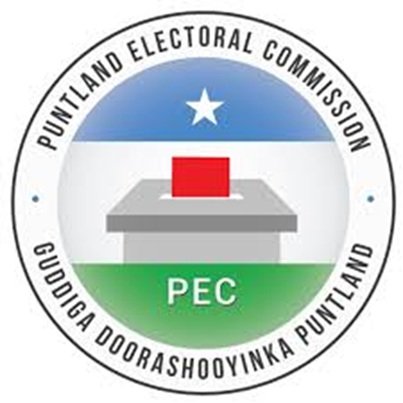Garowe (WDN) —In a strongly worded statement released Thursday morning, the Puntland Electoral Commission (PEC) has rejected widespread reports claiming it transferred electoral data to Somalia’s federally disputed electoral body. The PEC, a key institution overseeing Puntland’s democratization process, categorically denied any unauthorized sharing of election-related information and reaffirmed its commitment to transparency and independence.
The clarification comes amid growing speculation and political tension between Puntland and the Federal Government of Somalia (FGS), particularly over issues of electoral jurisdiction, legitimacy, and federal interference in regional affairs.
Claims Refuted in Public Statement
In its press release, the PEC emphasized that the data in question—ranging from voter registration numbers to polling station names—is already publicly available and forms part of the commission’s efforts to maintain openness in its democratic processes.
“There is nothing secret about this information,” the statement said. “The number of voter registration centers, polling stations, registered voters, voting procedures, and other operational details were all made available through official PEC platforms well in advance.”
The PEC further noted that the data is accessible on its website and that no unique or sensitive information had been communicated privately to any entity, federal or otherwise.
“We categorically deny that anything has been handed over in a clandestine manner,” the PEC clarified. “The data being cited is publicly hosted for transparency and democratic accountability purposes.”
Context: Autonomy and Mistrust
This incident highlights the deep mistrust between Puntland and the Federal Government in Mogadishu. Puntland, long regarded as a trailblazer in Somalia’s federal system, has increasingly distanced itself from what it views as unconstitutional overreach by President Hassan Sheikh Mohamud’s administration.
For over a year, Puntland has operated as a de facto autonomous state, refusing to recognize federal institutions it claims are biased, politicized, and illegitimate. The region has implemented its own electoral process, culminating in a multiparty municipal election—the first of its kind in over half a century in Somalia.
Recent reports that PEC officials may have shared internal data with the federal electoral body ignited strong reactions from Puntland’s civil society, opposition parties, and local media. Thursday’s statement appears aimed at calming tensions and reaffirming PEC’s neutrality and institutional independence.
Transparency as a Shield
Observers note that by proactively publishing electoral data and maintaining transparency in its processes, the PEC may be seeking to insulate itself from political manipulation or misinformation campaigns.
“We’ve taken deliberate steps to ensure that all electoral processes are well-documented and accessible,” a PEC source told WDN. “This is not just about elections—it’s about public trust and institutional credibility.”
By reaffirming that all information is publicly available, the PEC is effectively turning the narrative on its head: rather than defending against accusations of leaking, it positions itself as a champion of transparency.
Looking Ahead
This episode underscores the delicate balance between federalism and regional autonomy in Somalia, as well as the vital role electoral bodies play in maintaining political stability and public trust.
As Puntland prepares for the next phase of its electoral cycle, the PEC’s credibility and impartiality will remain under scrutiny—both from local stakeholders and international observers. But for now, the commission seems determined to defend its independence and push back against narratives that could undermine its legitimacy.
WardheerNews


Leave a Reply